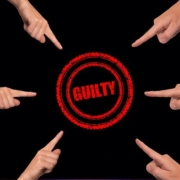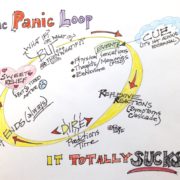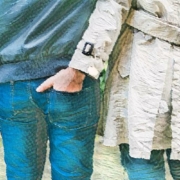Harry Harlow was the first to do groundbreaking research using rhesus monkeys to demonstrate the profound impact mother attachment had on the normal growth and maturation of the baby monkeys in his experiments. It showed that even when the monkeys were repeatedly rejected by painful mother “dolls”, they would return seeking connection even though the source (the doll) was woefully lacking in the same.

The need for connection is that strong. His research has well stood the test of time, and many others have built upon it. A wonderful read about his work is found in Love at Goon Park: Harry Harlow and the Science of Affection by Deborah Blum.
This research and more, I’m certain, became the basis for Emotionally Focused Therapy, EFT, founded by Sue Johnson, Ph.D., and her colleagues.
The summary? At its heart, what matters is love.
Of Harlow’s research, Blum, in Love at Goon Park, writes:
“What attachment theory essentially says is that being loved matters — and, more than that, it matters who loves us and whom we love in return. It’s not just a matter of the warm body holding the bottle; it’s not object love at all; we love specific people and we need them to love us back. And in the case of the child’s tie to the mother, it matters that the mother loves that baby and that the baby knows it. When you are a very small child, love needs to be as tangible as warm arms around you and as audible as the lull of a gentle voice at night.”
Johnson’s research says that learning how to argue better is less important than realizing your need for your partner’s love and affection. It is the same as the need a child has for nurturing, soothing and protection. Feeling this attachment need as threatened is usually what lies at the heart of a couple’s ongoing conflicts.
EFT focuses on strengthening the bond between couples, highlighting what united them in the first place, and finding ways to recover from the distress and unhappiness in their relationships.
This therapy is not for those in abusive or violent relationships, nor is it for people struggling with serious addictions, both of which inhibit the ability to engage positively with partners.
I like what Johnson says about the ways “we all live out the drama of connection and disconnection.”
We all argue. We all have our disagreements and moments of neglect for the other. This speaks partly to the fact that emotions come and go; they never stay the same.
But it also raises the hope and possibility that the connection that is present between a couple can be healed if it has been breached, and strengthened over time to form even an deeper connection. It requires work, and risk, from both parties to do this successfully.











Leave a Reply
Want to join the discussion?Feel free to contribute!